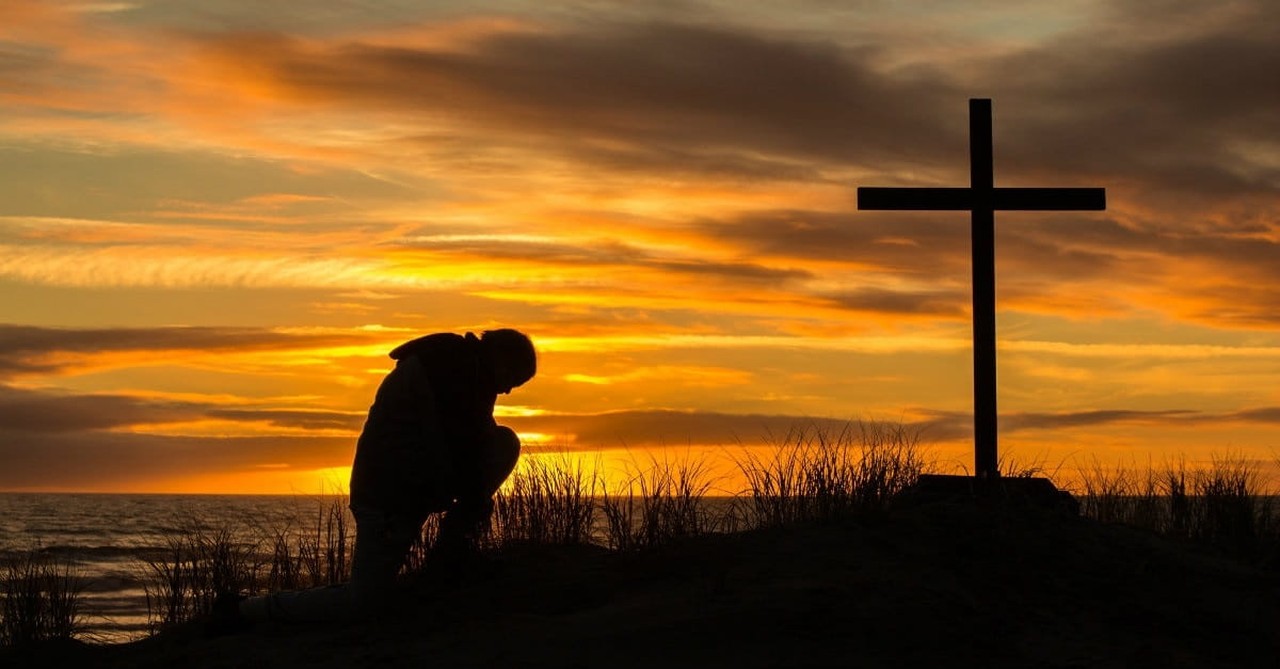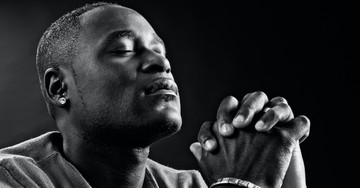3 Powerful Stories That Show How to Follow Christ under Persecution

It’s no secret that storm clouds are gathering over the Church in Western cultures.
As Western Christians, we’ve watched our societies slip from biblical principles. We’ve felt social hostility toward biblical teachings intensify. We’ve witnessed the rise of legislations affecting religious freedom. And we’ve started to think more seriously about what it means to follow Jesus when tempestuous waves begin rising around us.
We might not experience the kind of persecution many Christians around the world endure. Maybe we’ll never be called to stand before a jury, spend years in a labor camp, or pay the ultimate price for our faith. We don’t know for sure what will happen next.
But we do know that Paul told Timothy, “Indeed, all who desire to live a godly life in Christ Jesus will be persecuted, while evil people and impostors will go on from bad to worse, deceiving and being deceived” (2 Timothy 3:12, ESV).
Knowing that following Jesus means sharing His sufferings, how can we prepare to live fully for Christ in hostile environments? One especially practical way is to read autobiographies of Christians who have tasted hardships before us.
Their insights equip us to stay close to Jesus as thunderclouds thicken. Their stories assure us His love will hold fast through the storm. And their testimonies allow us to glimpse God’s glory more fully against backdrops of deepening darkness.
Here are some highlights and takeaways from three such books, which reveal how to follow Christ under persecution:
Photo Credit: ©Pexels/Masha Raymers
1. God’s Smuggler by “Brother Andrew”

1. God’s Smuggler by “Brother Andrew”
SLIDE 1 OF 3
Overview:
Growing up in 20th-century Holland, “Brother Andrew” yearned for adventure. He’d tasted some of it while resisting the Nazis occupying his home country, and more while fighting in the East Indian colonies. But not until after becoming a Christian did Brother Andrew realize God’s purpose in creating him with a penchant for danger: he was called to strengthen the church behind the Iron Curtain.
As he journeyed alone seeking Christians in Poland, Czechoslovakia, Yugoslavia, and other formerly communist nations, Brother Andrew began piecing together a picture of persecuted Christianity in Europe. Believers in officially-sanctioned churches worshiped with “freedom”—provided they preached nothing that offended the atheistic government. “It’s a compromise,” one such pastor told Brother Andrew, “But what can you do?”
To the believers in underground churches, however, compromise was not an option. They preached, believed, and lived out the entire Bible. The trouble was, Bibles were nearly impossible to find.
Thus began Brother Andrew’s remarkable adventures taking Bibles across hostile borders as “God’s smuggler.”
Practical takeaways for Christians today:
- Memorize God’s Word. (Psalm 119:11)
In one region Brother Andrew visited, he described how Christians came to church with notebooks in which they copied every line of hymns or Scriptures they heard. People clearly hungered for God’s word, but a single Bible could cost the price of a motorbike. Hearing these believers’ plights reminds us of our need to hide God’s word in our hearts while we enjoy the freedom to do so.
- Depend Fully on God. (Proverbs 3:5-6)
A recurring theme in Brother Andrew’s stories is that when God calls us to a task, He is faithful to complete it—no matter how impossible the circumstances. Brother Andrew knew he couldn’t enter restricted nations, bring Bibles across certain borders, or contact hidden Christians through his own skillfulness.
But whether by “blinding” border officials, sending rain to obscure a Bible-laden vehicle, or arranging precise rendezvous between believers, God showed Himself faithful to accomplish what Brother Andrew could not.
- Disciple the Youth. (Deuteronomy 6:4-7)
Throughout his book, Brother Andrew documents the incredible pressure which Christian youth experienced to conform to communism. Knowing that youth represent the future of society, governments invested considerable effort into turning youth towards the atheism preached in schools.
If churches and families do not disciple youth to live for Christ in hostile cultures, the cultures will do the discipling instead.
Photo Credit: ©Unsplash
2. God’s Smuggler to China by “Brother David”

2. God’s Smuggler to China by “Brother David”
SLIDE 2 OF 3
Overview:
In 1969, a pastor watched as soldiers confiscated his Bible, gathered the Bibles from his congregation members, and set the Scriptures all ablaze. The pastor wound up in prison, unable to see or to walk because of torture, malnutrition, and dark solitary confinement.
But he could pray.
After watching the Bibles burn, he had prayed that God would call someone to bring more Bibles into his homeland.
Meanwhile, across the ocean, God was indeed calling a future colleague of Brother Andrew, “Brother David,” to take Bibles to China. Along the way, Brother David heard accounts from the underground church that sounded like stories straight from the book of Acts.
In one instance, two elderly ladies were holding a large-scale prayer meeting when a knock sounded at the door—the police. Seeing that one of their would-be arrestors bore a facial disfigurement from cancer, the ladies naturally prayed for him. The officers left without further incident—but the one returned the next day.
Healed.
The ladies soon led him to Jesus.
Another family, the Kwangs, could share many similar testimonies. They’d endured intense suffering for refusing to disobey Christ, with consequences including imprisonment, torture, labour camp, hunger, and even the loss of a child. While imprisoned, Mrs. Kwang introduced hundreds of people to Jesus—including some officials assigned to torture her.
Through these and many similar stories, God’s Smuggler to China illustrates that God’s glory shines bright even in the darkest circumstances.
Practical takeaways for Christians today:
- Count the Cost. (Luke 14:28-22)
Stories of severe persecution remind us that following Jesus comes at a price. Yet whatever the earthly cost of our faithfulness, the cost of compromise is far greater. As Jesus explained to his disciples, “whoever denies me before men, I also will deny before my Father who is in heaven” (Matthew 10:33, ESV).
On the flip side, the eternal reward for faithfulness far exceeds its earthly cost as well. In Paul’s words, “We are afflicted in every way, but not crushed; perplexed, but not driven to despair; persecuted, but not forsaken; struck down, but not destroyed…this light momentary affliction is preparing for us an eternal weight of glory beyond all comparison” (2 Corinthians 4:8-17, ESV).
- Draw Close to God. (Hebrews 4:16)
Testimonies from Christians like the Kwangs also reassure us that hard times provide opportunities to seek God as never before. In turn, drawing close to God during trials allows us to watch Him work in ways we may not have otherwise.
As one believer relayed after meeting Mrs. Kwang, “In herself, she is not extraordinary. It’s because she walks so close to Him that He can do a great work through her.”
- Live a Life of Prayer. (Colossians 4:2)
When Brother David asked the Kwangs how they and their fellow believers managed to walk so closely to God, they replied that such an intimate relationship is available to any Christian. However, it requires sacrifice.
Brother David asked whether the sacrifice was persecution. “No,” the Kwangs responded. They weren’t speaking of a sacrifice of suffering, but a sacrifice of time in prayer.
Photo Credit: ©Thinkstock/GordonImages
3. God’s Double Agent by Bob Fu

3. God’s Double Agent by Bob Fu
SLIDE 3 OF 3
Overview:
Although once a promising student, Bob Fu now had nothing left to live for except murder. Everything had changed after the Tiananmen Square protests. Only because of his girlfriend’s sudden illness had Bob left the protests shortly before they ended in massacre.
Back at university, Bob found that his former friends now shunned him as a counterrevolutionary—including the university president. Stripped of his prospects, Bob determined he’d end his own life, and the president’s too. But then he read the book which led him to Christ.
Before long, Bob’s newfound faith spearheaded a notable revival among his fellow students. He didn’t realize how illegal his evangelistic activities were, however, until he landed in an interrogation cell for handing out religious pamphlets at a church service. If only he didn’t have the pamplets with him in the interrogation room!
I won’t give away how the authorities missed discovering the pamphlets. But I will say that when Bob returned to campus, he found his friends on their knees praying for him. From there, the students realized they must go “underground.”
Bob’s adventures only intensified after graduation. By day, he taught English to high-ranking communist officials. By night, he operated a training centre for underground pastors.
Days of imprisonment, miraculous escapes, and other exploits lay ahead—but I’ll let Bob tell you about them himself in God’s Double Agent.
Practical takeaways for Christians today:
- Live with Character. (1 Peter 2:12)
When Bob discovered his decision to follow Christ literally made people question his sanity, he recognized that as Christians, we can’t control others’ responses to us. “In reality,” he decided, “the only thing we can control is our character, so that should be my primary concern.”
He later explained how character itself is a powerful witness, describing how the conscientiousness of Christian factory workers inspired their co-workers to faith. We, like these Christians, become portraits of God’s grace when we live faithfully for Jesus whatever the circumstances.
- Walk in Wisdom. (Ephesians 5:15-16)
When Bob and his fellow students realized the dangers of following Christ, they didn’t stop sharing the gospel. They simply sought ways to do so strategically, following Jesus’ warning to be “wise as serpents and gentle as doves” (Matthew 10:16). Their actions remind us to fall into neither fear nor recklessness, but to “walk in wisdom toward outsiders, making the best use of the time” (Colossians 4:5, ESV).
- Seek Godly Mentors. (Psalm 145:4)
When the students went underground, one of them asked, “Hasn’t the Lord prepared us for this moment? We’ve been nurtured by those older Christians, who’ve already experienced so much suffering. They’ve testified that God is faithful even during their persecution.”
Like these students, we can prepare ourselves to follow Jesus in hostile environments by learning from those who have tasted God’s faithfulness before us.
Walking on Water
This student’s realization highlights the importance of reading stories from the persecuted church—stories like God’s Smuggler, God’s Smuggler to China, God’s Double Agent, and many, many others.
These autobiographies lend us practical insights for facing hostility, urging us to memorize Scripture, depend fully on God, count the cost of discipleship, draw close to our Saviour, offer the sacrifice of prayer, live with character, walk in wisdom, disciple the young, and learn from the old. Along the way, such testimonies also let us glimpse the glory of a God who stands on tempest-driven waves—and bids us to follow Him into the storm.
Photo Credit: ©GettyImages/beerphotographer
Patricia Engler is a Christian apologetics speaker, writer and Youth Outreach Coordinator for Answers in Genesis Canada. After 12 years of homeschool and a B.Sc. degree, she backpacked 360°around the world documenting how Christian students keep their faith at university. You can follow her stories and get connected at www.patriciaengler.com or answersingenesis.org.
Originally published March 19, 2021.









